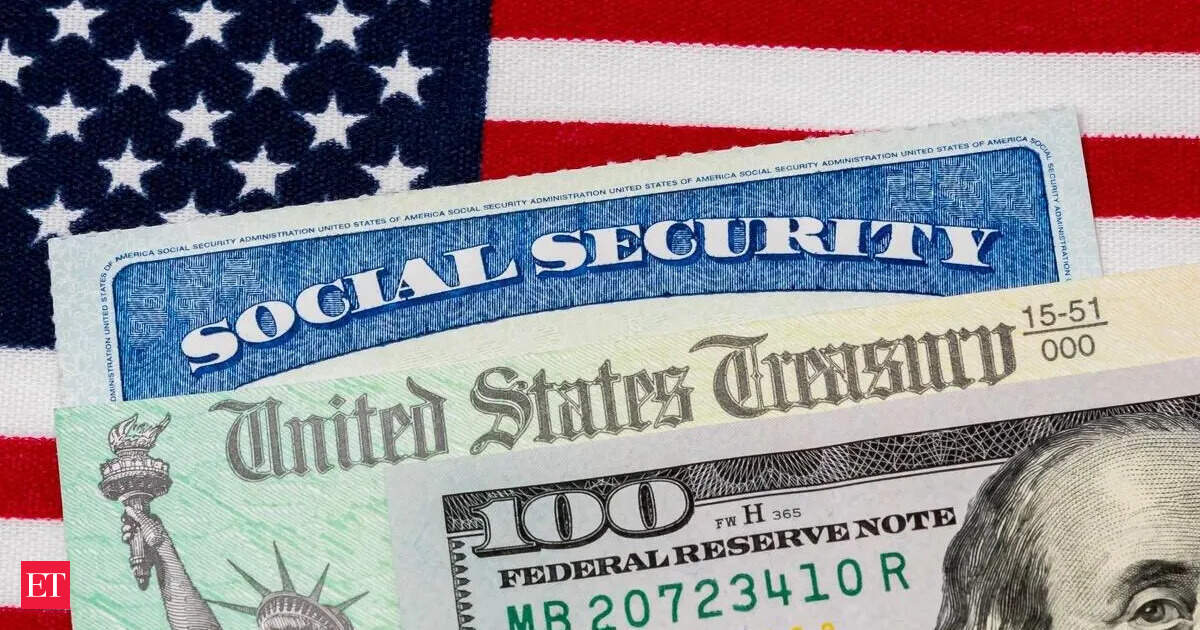Under a prospective new Social Security Administrative (SSA) policy, senior citizens soon won’t be able to simply call SSA to change their address or check the status of their benefit claim. They will have to first verify their identity online or go to a field office if they are unable to do so, reported CNN.
Under the new SSA policy change, around 3.4 million people would have to travel to field offices to update their addresses, among other requests. The crucial development comes at a time when the agency’s staff has been trimmed and offices experience extended wait times for appointments.
ALSO READ: Dr Vinay Prasad’s FDA exit in less than 3 months linked to Sarepta gene therapy controversy? Check details
Big changes in Social SecurityIn its latest bid to curb fraud, SSA is expanding its online authentication requirement for address changes, claim status requests, benefit verification letters and tax statements, according to a regulatory filing Social Security recently submitted to the Office of Management and Budget. The agency intends to implement the change by August 18, assuming OMB approves it.
The SSA is also looking to expand the use of multi-step verification to generate a personal identification number (PIN) so that beneficiaries can change their addresses, among other requests.
 Live Events”Beneficiaries will be forced to take millions of unnecessary trips to field offices, where they will face longer waits for appointments and slower processing times,” wrote Kathleen Romig, the director of Social Security and disability policy at the Center on Budget and Policy Priorities (CBPP) in a blog post. She added that this will create a “significant new burden”, especially for those who reside in rural areas or have transportation or mobility difficulties.
Live Events”Beneficiaries will be forced to take millions of unnecessary trips to field offices, where they will face longer waits for appointments and slower processing times,” wrote Kathleen Romig, the director of Social Security and disability policy at the Center on Budget and Policy Priorities (CBPP) in a blog post. She added that this will create a “significant new burden”, especially for those who reside in rural areas or have transportation or mobility difficulties.
ALSO READ: Justin Trudeau may have a new romance brewing: Ex-Canadian PM’s love life in spotlight after Sophie Gregoire separation
The SSA stated prevention of fraud as the cause for this change. Nancy LeaMond, the American Association of Retired Persons’ executive vice president and chief advocacy officer, said, “AARP supports efforts to strengthen fraud prevention and identity verification. However, we are concerned that SSA’s new Security Authentication PIN (SAP) process, particularly its expansion to additional telephone services, could create new barriers for older adults who rely on telephone access to manage their Social Security benefits.” The SSA announced that beneficiaries could make the changes online, but that would still pose new difficulties, AARP said. “Our experience shows that the option to verify identity online will be a challenge for the one in four older adults who report never going online. Creating an online “My Social Security” account can be a complicated process for people who are uncomfortable with online systems or do not have reliable internet access,” LeaMond explained.
What are critics saying about SSA changes?Some advocacy groups have raised concerns that many senior citizens and people with disabilities won’t be able to complete the verification process, which includes the generation of a one-time PIN, through their mySocialSecurity accounts. “For many older Americans, the phone is how they access Social Security services without having to rely on complicated technology or long, difficult, or costly trips to field offices,” Nancy LeaMond wrote in a letter Tuesday to Social Security Commissioner Frank Bisignano.
“We are concerned that under this new policy, older Americans, especially those in rural areas, will have to call, wait on hold for possibly hours, and then wait weeks for an appointment — and in some cases even take time off work — to complete simple transactions they have long been able to do over the phone,” she wrote, urging the commissioner to reconsider the measure.
ALSO READ: Julian Brown missing: Was Atlanta inventor working on “the most dangerous thing” he’s ever done? Check details
Meanwhile, a Social security spokesperson said the report was inaccurate. The new identification process will not lead to increased field office visits and is “completely optional,” the spokesperson said in an email to CNN.
However, in the agency’s regulatory filing, there is no indication that the new policy is optional. The agency states in the filing that it expects there will be 3.4 million “Respondents who decline to use SAP (Security Authentication PIN) and visit a field office for in-person identity proofing.”

